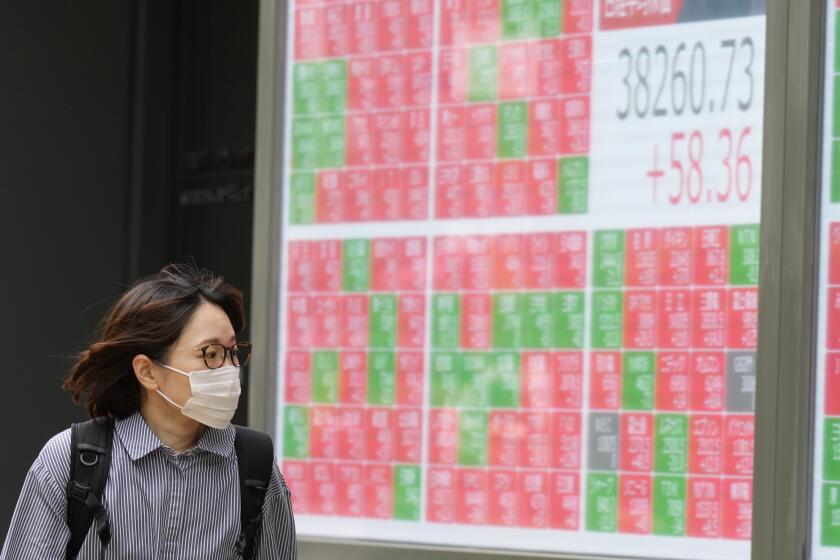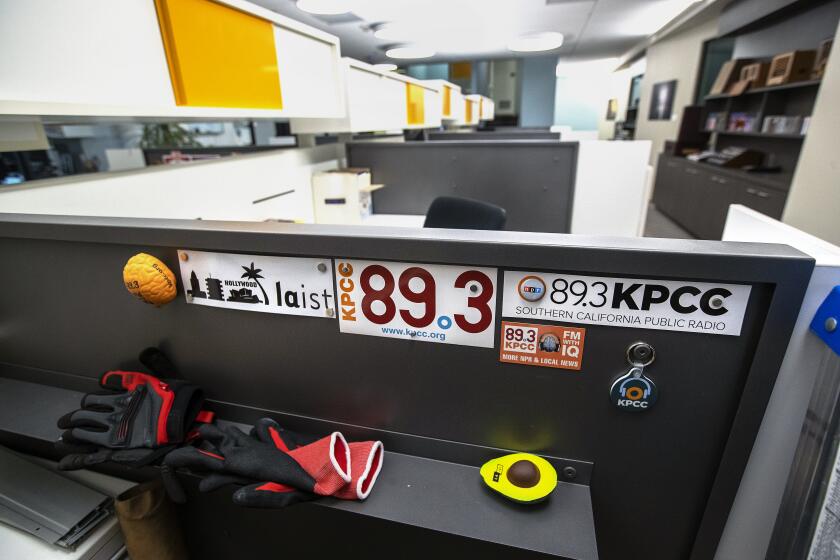Now High-Yield Bonds Become a Junkyard Dog : Bankruptcy: Drexel Burnham made the market for ‘junk bonds.’ It boomed, then busted, leaving the U.S. public with a monstrous bill.
Drexel Burnham Lambert hated the word “junk.” “They are not junk bonds,” a spokesman would insist, “they are high-yield securities.”
Maybe so. But Drexel’s sudden collapse last week left many investors wondering just how secure their high-yield investments were. And Drexel’s unsecured creditors, like the California Public Employee Retirement System, are left holding millions of dollars in the IOUs of a bankrupt firm, feeling lower than what Drexel spokesman might call a high-yield yard dog.
The Age of Junk is over. Not a moment too soon. Drexel Burnham Lambert, the high-flying Wall Street brokerage house that built colossal fortunes for its officers and favorite clients, filed Tuesday for Chapter 11. There in bankruptcy court it joins increasing numbers of companies involved in takeovers financed by high-yield bonds.
Drexel had been on the skids for a while. One of Wall Street’s most powerful financial institutions during the orgiastic ‘80s, Drexel agreed to plead guilty to six counts of criminal fraud in late 1988 and paid more than $600 million in fines. The fines didn’t end Drexel problems; its investors were threatening to sue and its last, desperate struggles to find a buyer were doomed by widespread fears that Drexel faces hundreds of millions, maybe billions, in claims from past victims.
Those who live by junk die by junk--the same high-yield bond market that made Drexel great brought it low. Investors began to turn away from those bonds last summer and the market grew increasingly jittery when highly publicized deals turned sour. By October, 1989, junk was a dirty word on Wall Street; one deal after another had to be cancelled or postponed because buyers could not be found for new bonds. Drexel, which has about $1 billion worth of junk bonds on its books, hemorrhaged money as their value steadily fell. The final blow came when a consortium of banks led by CitiCorp refused to accept Drexel’s portfolio of junk as collateral for new loans.
As sophisticated junk-bond investors sort through the rubble, looking for values in a depressed market, the long-term cost of the orgy are beginning to emerge. They are high. The first bill to come due will be from the troubled savings-and-loan industry, where taxpayers already face costs of $200 billion or more after a decade of mismanagement and fraud. S&Ls; were once sleepy little financial institutions set up to collect the savings of small investors and make them available for home-mortgage loans. When deregulation fever swept early-Reagan Washington, S&Ls; wanted permission to venture into new and riskier markets. Then they used new freedom to buy junk. The fall on junk-bond prices in the last nine months, and the possible difficulties ahead, threaten to push more thrifts into insolvency and increase the losses facing the government’s already troubled bailout effort.
This is not the only way junk-bond shenanigans will hit the average American household. Thanks to bond madness, dozens of companies looted their pension funds in the ‘80s. With junk bonds offering much more income than traditional investments, companies claimed that they could meet their pension obligations by investing smaller sums of money in high-yielding securities, either directly or through junk-loving insurance companies like California’s First Executive Corp.
Now those pension funds are beginning to look distinctly unsafe. The default rates on high-yield bonds continue to rise; some bonds have lost as much as 50% of their value. Many American workers who thought their retirements were secure may be startled to discover their thoughts of financial security have turned into bad dreams.
Drexel always claimed that such bonds were good for the country. Michael Milken, once hailed as the wizard of junk, and now busy fighting a 98-count federal indictment, has been telling everybody who will listen that Drexel’s high-yield bonds were a populist, egalitarian institution, part of the American Dream.
The sentiments sound peculiar on the lips of someone who accepted compensation of more than $500 million in one year. A. P. Giannini, a real financial populist who built the Bank of America from scratch into the largest bank in the world, never accepted more than $50,000 per year.
Yet Milken and other bond apologists do have a point. Before junk, only a handful of blue-chip corporations could tap the credit markets. Drexel opened the door for less-established businesses. The ‘80s cult of the entrepreneur depended on the kind of easy finance that unorthodox lenders like Drexel--and high-flying S&Ls--were; able to provide.
For a while. But now that market is collapsing and smaller businesses will have a harder time than ever raising cash. The bond markets will be closed to them, and shellshocked commercial banks will tighten their lending standards.
Indeed, the collapse of Drexel is part of a larger and more worrisome development: a gradual contraction of credit in U.S. life. Our low national savings rate has made us dependent on foreign capital. Everything from the interest rate on the national debt to the health of local real estate markets depends on the willingness of foreign investors to risk money in the United States. Drexel itself was backed by a Belgian firm; late last week the Belgian parent announced that it was writing off its entire $92 million investment in Drexel Burnham. Japanese banks and insurance companies were heavy buyers of junk securities; they have been shocked by the sudden decline in the value of their investments and by the crash course Drexel has given them in U.S. business ethics.
In the future, foreign investors will have more fears about lending to any but the bluest of American blue chips--and this at a time when American businesses are hooked on debt as never before.
Junk-bond takeover artists made another claim in the ‘80s. U.S. management, they noted, was fat, lazy and often incompetent; it routinely paid itself huge salaries, loaded itself up with gaudy perks and regarded stockholders as an irritating nuisance. Drexel and others made managers accountable for the first time in many years. Corporate executives had to look over their shoulders. If they did not maximize stockholder value, there were others waiting in the wings who would--and Drexel would be there to finance the hostile takeovers.
Junk apologists hailed the restructuring of the ‘80s as a sign of new vigor in American capitalism but the new managements were often no better for the business than the old ones. Dozens of American companies now find themselves strapped for cash, saddled with debts, vulnerable to recession and unable to look beyond pressing immediate cash needs to the long term.
In some ways, the junk princes of the ‘80s were like the robber barons who built the great American industries of the 19th Century. Both groups were ruthless and operated at or near the margins of the law; both groups would subscribe to Gordon Gekko’s dictum in Oliver Stone’s film, “Wall Street,” that “greed is good.” The difference, though--and this is the real indictment against Drexel and its associates--is the legacy they leave behind. The old robber barons left the United States with transcontinental railroads and a great industrial base; Drexel and the predators leave only a bad smell--and a big bill.






